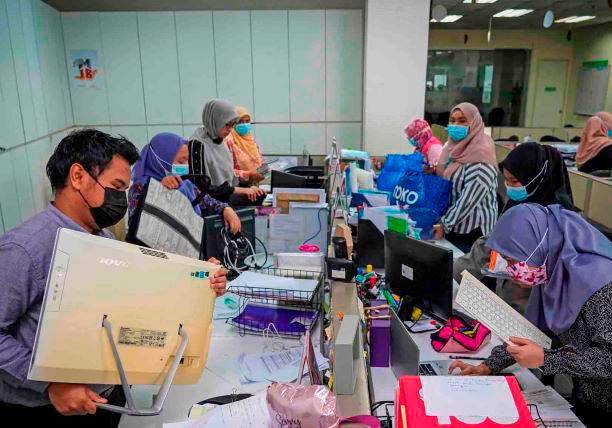Employers ready for progressive wage policy, but some housekeeping needed - MEF

KUALA LUMPUR - Employers are prepared to implement the Progressive Wage Policy with a pilot project ready to be rolled out in June this year, but cautioned the need to tighten any loose ends before implementing the policy, said the Malaysia Employers Federation (MEF).
According to its president Datuk Dr Syed Hussain Syed Husman higher wages based on the increase of productivity among workers will lure more investors to the country.
He said, the rate of productivity growth must be increased first with the cost to be borne by the employers, hence in order to offset the extra burden, the government should cover the cost for upskilling and reskilling before employees can be paid higher wages.
"The (progressive wage) policy is not only about adjusting wages that will commensurate with work performance, productivity, skills and experience but will also ensure employers improve productivity and profits while consumers get better products and services at affordable prices.
"Under progressive wage models, as employees acquire certified skills, gain more experience and show improved job performance and productivity they will be eligible for higher wages,” he told Bernama.
Syed Hussain opined that the implementation of the policy which involves an allocation of RM2 billion as a subsidy to volunteering employers, needs to be streamlined to ensure better understanding and attract more employers to participate in the programme.
"It is not clear how the subsidy will be allocated and the government has not determined the minimum rate of increment to be eligible for the subsidy. MEF is of the view that the subsidy on annual increment should not be limited to 12 months only,” he said.
Although he applauded the government’s move to introduce the progressive wage policy, Mydin Mohamed Holdings Berhad (Mydin) managing director Datuk Ameer Ali Mydin said the decision to not make the policy mandatory for businesses is the right step taken as every business is unique.
The businesses should decide on their own whether to participate in progressive wage policy or not, he said.
"Instead of using the stick approach, the government is using the carrot approach for at least a period of six months to one year of the implementation, let’s say (the increment of) RM200-RM300 (to the employees) will be borne by the government.
"... but once the private sectors with these extra amount of money see the productivity increase, they (employers) may be more than willing to pay higher wages as long as they can see that this is the way to incentivising the employees to work more productively,” he said.
Mydin according to Ameer, is ready to join in the implementation of the progressive wage policy with the hypermarket chain having filtered 7,000 employees to receive the benefits according to certain key performance indicators for employees holding the bottom and top-level management positions.
Meanwhile, EMIR Research head of social, law and human rights Jason Loh Seong Wei elaborated that the policy was fair and balanced as it does not impose directly on the employers with the government providing cash incentives to supplement the implementation of the salary increment.
"Not only will the participating employers be financially incentivised but the employees too, since they are the ultimate recipients of the progressive wage policy. That is, the cash incentives will ultimately be passed on to the employees who qualify.
"This will not only raise productivity in terms of output but also training and development (T&D) such as upskilling and reskilling,” he said.
On Nov 30, the Ministry of Economy in a written reply to a question from Senator Datuk Wira Koh Nai Kwong stated that about 80 per cent of selected employers are willing to participate in the Progressive Wage Policy if it is voluntary and gives them the opportunity to first examine the company's financial capabilities and performance before participating. - BERNAMA










